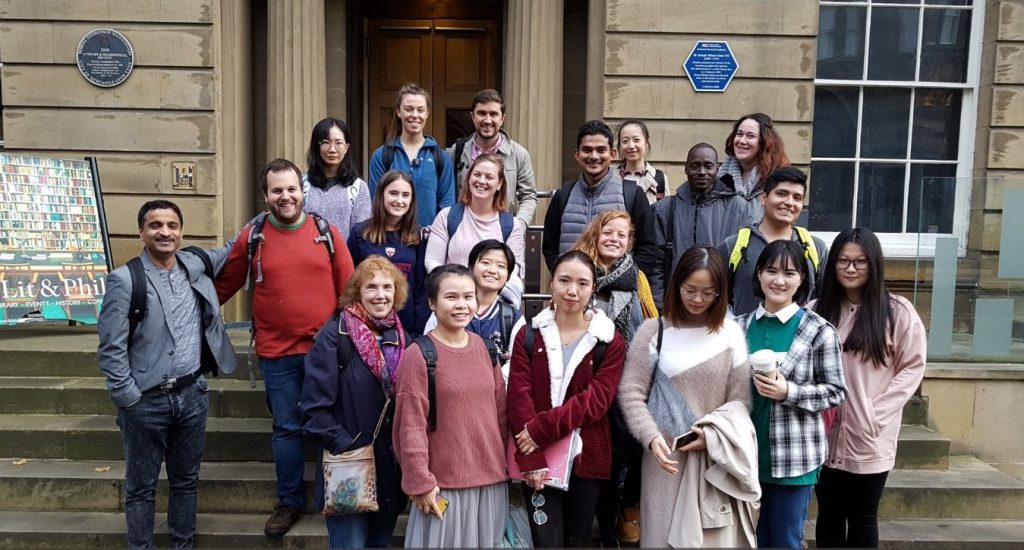Dr James Stanfield, Lecturer
School of Education, Communication and Language Sciences
Humanities and Social Sciences
What did you do?
Students are asked to create their own blog and then post their answer to a very challenging big question each week related to the content of the lecture.
Who is involved?
MA students studying EDU8213 The Future of Learning on the MA International Development and Education
Dr James Stanfield, Module Leader

How did you do it?
In the first week, students are invited to set up a blog (I recommend WordPress) and this is accompanied with a discussion about online privacy. Students are free to use their own name or they can remain anonymous and a list of the blogs is posted on Blackboard. Students are then asked to ‘Follow’ all of the blogs and they will then receive a notification in the ‘Reader’ section when a new blog is posted.
At the end of each weekly lecture I present students with an open, challenging and complex question. For example “Will robots replace teachers in the future? Discuss” While the blog itself is not assessed it is made very clear that the best way to prepare for their final written assignment is to spend time addressing each big question and posting their response on their blog. No word limit is provided and the students are free to write as much or as little as they see fit. Students are also encouraged to read each other’s blog posts. Prior to the next lecture I will quickly scan the blogs and identify any interesting points for further discussion. I will also post comments on as many blogs as possible.
Student Voice
Read some examples of student blogs below:
Jane in Education https://janeineducation.wordpress.com/
The Future of Learning https://thefutureoflearning2018bo.wordpress.com/2019/02/11/50/
The future of learning – Pedagogical innovations https://gemmaedu8213.wordpress.com/
Why do you do it?
First, it is an excellent way of encouraging students to reflect and think more deeply about the issues discussed in each lecture and to express their own opinion.
Second, it challenges students to search for relevant information and points of view on the internet – an important skill that they will need in the future.
Third, it enables students to learn from each other.
Fourth, as Module leader it also allows me to quickly identify those students who may be struggling and need additional support.
Fifth, it helps students to think about and develop their online presence and finally, it helps to prepare students for their final written assignment.
Does it work?
The final written assignment is a choice of three big questions on subjects that we will not have discussed in class in any detail and students are invited to choose the question which they think is the most challenging. By attempting to answer a big question each week the students are much better prepared for this final assessment. As module leader the blogs also provide immediate feedback on which students may need additional support and encouragement. I can’t be sure but it’s possible that writing a short blog each week also helps students develop their writing skills. Towards the end of the module we also discuss the importance of having an online profile which they control and manage themselves and also how their online content could in the future help to support their search for employment. I think many of the students will now continue to develop their online profile in the future.
While this use of blogging is sustainable for a class of 30 students it may be unsustainable for larger classes due to the amount of time that is needed to read and comment on blogs. For larger classes some form of peer review mechanism would be required where small groups of students are invited to comment on each other’s blogs. There is also the potential to link the blogs more closely to how the students are assessed.
Contact details
James Stanfield, School of Education, Communication and Language Sciences
